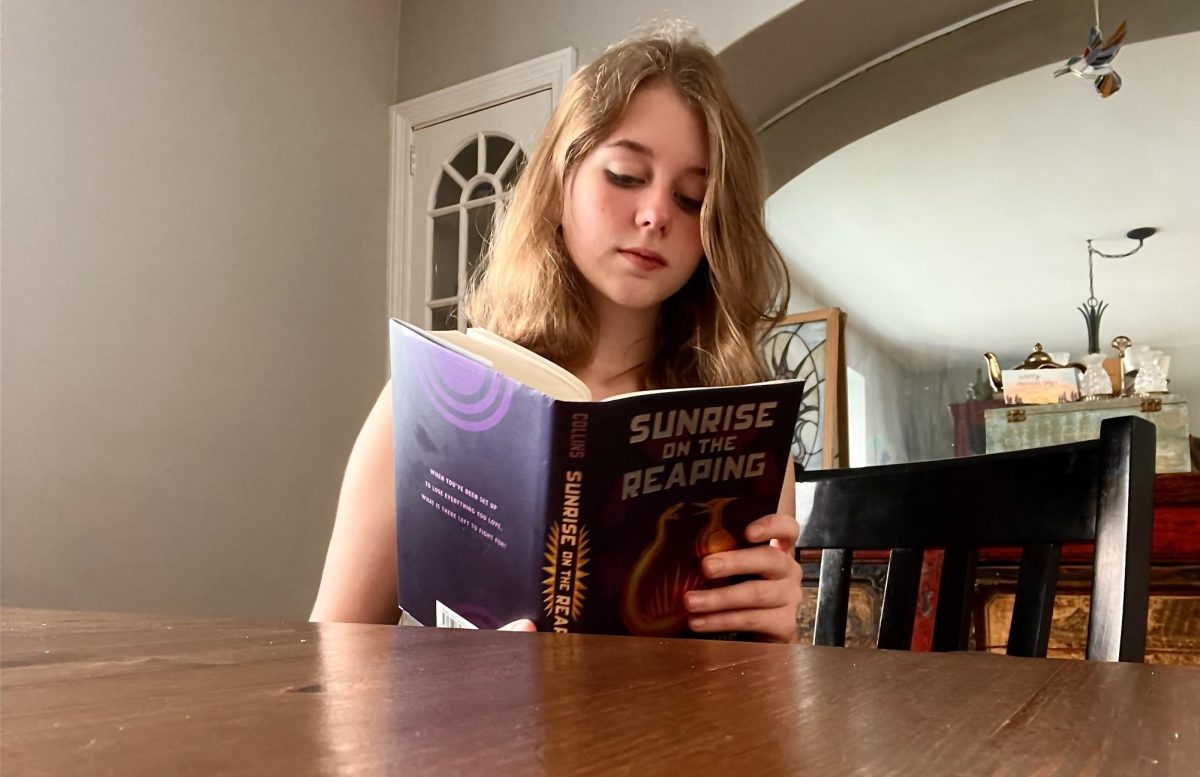When I came across the 2015 movie Carol, I adored it from the first watch. Immediately though, I was struck by the parallels between Carol and the beloved 2017 movie Call Me By Your Name, which I had watched for the first time just a few months prior. Upon examining the bare bones of the two movies, I noticed that both are based on books and centered around same-sex couples with significant age gaps. In addition, the aesthetics of the films are both beautiful and closely tied to the seasons in which their stories take place. Since making the connection, I have been fascinated with comparing them.
One of the largest controversies about Call Me By Your Name is the age gap between the two love interests. The main character, Elio, is only 17 when he engages in a relationship with a 24-year-old Oliver. In Carol, the protagonist, Therese Belivet, is around 20, while her love interest, Carol, played by Cate Blanchett, is meant to be in her 30s. It is safe to say there is a larger age gap between Therese and Carol, but Elio’s being underage ultimately makes the age gap in Call Me By Your Name far more harmful.
In the end of Call Me By Your Name, Elio inevitably has his heart broken by an adult man who doesn’t care as much. This could have made for a fine cautionary tale. Instead, the relationship is glorified through a speech about valuing the experience of love, and the framing of this toxic relationship as beautiful is maintained throughout the film. In the end of Carol, Therese matures into the ability to make decisions, and Carol finally sees her as a peer; the power dynamic becomes balanced between them. Neither movie explicitly addresses the age gaps, but I am of the mind that Call Me By Your Name romanticizes it while Carol overcomes it.
If there is one indisputably positive aspect of Call Me By Your Name, it is the aesthetics. The film offers a barrage of beautiful settings in Italy. Elio and Oliver bond in the green countryside and swim in vibrant blue pools. The film goes to great lengths to showcase the mountains, the ocean, and a charming, classical city. Many will tell you that the film feels like a summer memory, and I agree. However, I feel that these visuals are rather empty. I love to see the beautiful Italian scenery as much as the next viewer, but I can’t appreciate it knowing that the amount of time spent on aesthetics and cinematography could have been used to craft a much stronger story.
Carol is set in the winter. It frequently portrays attractive shots of the dreary winter countryside and the endearingly declining motels. The movie also leans into the charm of Christmas, as the characters shop for trees together and meet during the holiday rush at a department store. The aesthetics are not as vivid and colorful, but they have their own charm, which I very much enjoyed. Most importantly, the cinematography doesn’t take away from the actual story and characters.
Personally, I believe that one of the most important aspects of storytelling is character depth. Largely contributing to my hatred for action movies, I find myself most interested in why characters do what they do and what that means. I could not tell you a compelling reason why Elio does anything in Call Me By Your Name, much less name any motivations of Oliver. I have watched and rewatched the movie, searching, but the reasons remain incredibly vague. On one hand, I can appreciate the magic of young love represented in film, but on the other, something has always felt off to me. Elio’s character traits, like his love for music and his family relationships, never become cohesive with the main romantic plot. Elio is attracted. He falls for Oliver. Oliver leaves. Elio is upset. There is nothing clear behind it.
In comparison, Carol and Therese both are characters with personalities outside of their relationship and meaningful character arcs. Therese’s main conflict is that she doesn’t know what she wants and she always says “yes.” She doesn’t know if she wants her boyfriend. She doesn’t even know what she wants for lunch. She goes through the movie agreeing with Carol from taking a cigarette to going on a roadtrip with a near stranger. By the end of the movie Therese is capable of saying “no.” She finally comes into her power and balances the dynamic.
Carol has her own struggles with a custody battle and divorce as her sexuality is weaponized against her. In the end, she gives up partial custody of her child in the realization that if she were denying herself and her love, she wouldn’t be a worthwhile mother anyway. Carol still somewhat falls into the trap of having characters fall in love with little motivation behind their attraction, but that can be excused because unlike in Call Me By Your Name, the two romantic leads are distinct characters who make choices and evolve over the course of the story.
All in all, I believe that Carol is like a superior sister movie to Call Me By Your Name. Call Me By Your Name is beautiful but it is more surface level and much easier to pick apart. Call Me By Your Name is defined by aesthetics in comparison to Carol, a movie with more care put into the characters and relationships. I’d recommend everyone to watch both. At least one is sure to speak to you.















